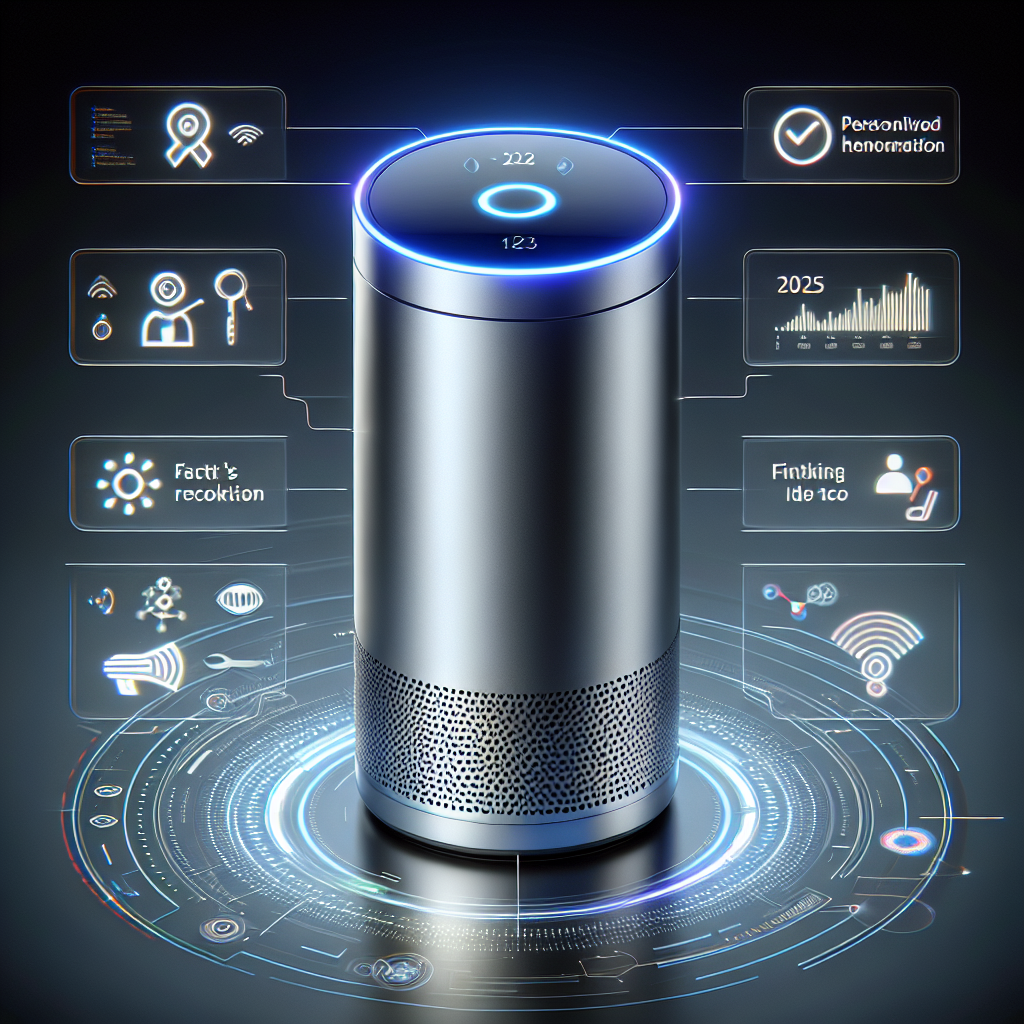Amazon’s AI-Powered Echo: A Smarter Alexa for 2025?
Introduction
In 2025, Amazon’s AI-powered Echo represents a significant leap forward in smart home technology, integrating more advanced artificial intelligence to make Alexa smarter, more intuitive, and more seamlessly integrated into daily life. This new iteration of the Echo device not only responds to voice commands but also anticipates user needs and preferences with unprecedented accuracy. Enhanced by machine learning algorithms and a vast array of sensors, the 2025 Echo offers personalized experiences and facilitates a more connected and efficient home environment. This evolution reflects Amazon’s commitment to innovation in the realm of consumer AI, pushing the boundaries of what smart devices can achieve in personal assistance and home automation.
Exploring the Evolution of Amazon’s AI-Powered Echo: What to Expect from a Smarter Alexa in 2025?
Amazon’s AI-powered Echo devices have been at the forefront of smart home technology since their introduction in 2014. Over the years, these devices have evolved significantly, integrating more sophisticated features and becoming increasingly embedded in the daily lives of users. As we look towards 2025, expectations are high for the next generation of Echo devices, particularly regarding advancements in Alexa, Amazon’s virtual assistant. This anticipation stems from both technological advancements and changing consumer needs, which suggest a future where Alexa could be even more intuitive and helpful.
Currently, Alexa operates primarily through voice commands, assisting with tasks ranging from playing music and providing weather updates to controlling smart home devices. However, the AI behind Alexa has been continuously learning and adapting, driven by vast amounts of data gathered from user interactions. This ongoing learning process is crucial as it forms the foundation upon which future capabilities are built. By 2025, we can anticipate these capabilities to be significantly enhanced by deeper machine learning algorithms and perhaps even elements of artificial general intelligence (AGI).
One of the most exciting prospects is the potential for Alexa to become more proactive rather than just reactive. Instead of waiting for commands, Alexa could anticipate needs based on the context, time of day, or even emotional tone in the user’s voice. For instance, if you’re discussing having a stressful day during a call, Alexa might suggest calming music or a meditation session afterward without being prompted. This level of contextual understanding would require advancements in natural language processing and emotional AI, fields that are currently seeing rapid growth.
Moreover, the integration of Alexa with other services and devices is likely to become more seamless. Amazon has already made strides in this area with partnerships across various industries, but by 2025, Alexa could function as a central hub for all interconnected devices and services. This integration could extend beyond mere functionality, offering a more personalized experience. For example, Alexa might help manage not just your schedule and tasks but also offer insights based on your health data collected through wearable devices, suggesting activities or diet adjustments.
Privacy and security will, of course, remain paramount, especially as Alexa’s capabilities expand. With increasing concerns about data security and privacy, Amazon is likely to invest heavily in ensuring that their systems are both secure and transparent. Users will want assurance that their data is not only protected but also used responsibly, prompting Amazon to possibly adopt more stringent privacy protocols and give users more control over their data.
In conclusion, the evolution of Amazon’s Echo and its AI, Alexa, points towards a future where the assistant is not only smarter but also more integrated into our daily routines, acting almost as a personal assistant that anticipates our needs and preferences. The journey towards this future will involve significant advancements in AI technology and user interface design, coupled with a strong commitment to user privacy and security. As we move closer to 2025, it will be fascinating to see how Amazon navigates these challenges and opportunities, potentially redefining our interaction with technology in our homes and beyond.
Conclusion
In conclusion, Amazon’s AI-powered Echo for 2025 represents a significant advancement in smart home technology. With enhanced AI capabilities, Alexa has become more intuitive and responsive, offering users a more personalized experience. The integration of improved natural language processing and machine learning algorithms allows Alexa to understand and predict user needs more effectively, thereby facilitating smoother interactions. Additionally, the expansion of Alexa’s skill set and compatibility with a broader range of smart devices underscores its evolution into a more versatile and powerful tool for everyday convenience and connectivity. This progression not only solidifies Amazon’s position in the competitive smart home market but also sets a new standard for future developments in AI-powered assistants.



